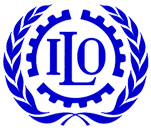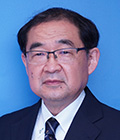International Labour Organization (ILO) Office for Japan

What is ILO ?

Gilbert F. Houngbo
The International Labour Organization (ILO) is devoted to advancing opportunities for women and men to obtain decent and productive work in conditions of freedom, equity, security and human dignity. Its main aims are to encourage decent employment opportunities, enhance social protection, strengthen dialogue in handling work-related issues, and to promote rights at work. ILO is the only “tripartite” United Nations agency in that it brings together representatives of governments, employers and workers to jointly shape policies and programmes.
Message from ILO Office for Japan

Nozomi Tomita
Established in 1919 together with the League of Nations, ILO is an international organization with long history and tradition, which celebrated its centenary in 2019. The ILO, one of the specialized agencies of the United Nations, aims to bring peace through realizing social justice, and carries out such activities as developing international labour standards and monitoring their application as well as development cooperation activities in the field of social and labour. Back in 1969, ILO was awarded Nobel Peace Prize for its contribution toward social justice and world peace.
Japan is a founding member of the ILO, and is a very important partner for the ILO. Representatives of Government, Employers and Workers are playing active roles as members of its Governing Body. It has provided financial and technical support to ILO’s development cooperation programmes. Japan is contributing towards better working environment at the global level by sharing experience and lessons learned. Further contribution through human resources is also expected.
We are still confronted with many challenges in the field of employment and labour issues worldwide. Especially in developing countries, employment opportunities are insufficient, and there exist a number of working poor who cannot obtain sufficient income from their jobs, and workers in the informal economy to whom social protection nor labour laws are applied. Human rights violations including child labour and forced labour, workers faced with discrimination, interference in trade union activities are also issues to be tackled. With globalization, supply chains have become increasingly complex, involving workers and enterprises around the world.
Realizing “Decent Work for All” is the ILO’s agenda. In 2015, UN member states have agreed on the 2030 Agenda for Sustainable Development. The importance of decent work in achieving sustainable development is highlighted by SDG 8 which aims to “promote sustained, inclusive and sustainable economic growth, full and productive employment and decent work for all”.
The Centenary Declaration for the Future of Work, which was adopted at the 108th session of the International Labour Conference in 2019, is a compass to take us forward in the changing world of work. By emphasizing the human-centred approach in addressing the challenges of the future of work, the Declaration provides guidance to the ILO on how to tackle global challenges such as technological innovation, aging population with declining birth rate, climate change and globalization by getting better understanding through social dialogue. The outbreak of COVID-19 pandemic afterwards is causing unprecedented changes in the world of work. We will continue working to advance our mandate for social justice and global peace, and make progress towards the realization of the Decent Work Agenda through continuous dialogues with our tripartite constituents.
Contact
International Labour Organization (ILO) Office for Japan
UNU Headquarters Bldg. (UN House) 8F, 5-53-70, Jingumae, Shibuya-ku, Tokyo, 150-0001, Japan
E-mail:tokyo@ilo.org
http://www.ilo.org (HQ)


